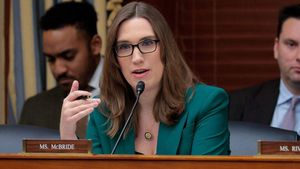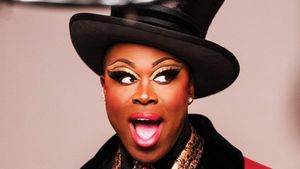There is a widespread assumption about the necessity of a child to be raised by both a mother and a father. It was used in the case of California's Proposition 8 in arguments against the state allowing same-sex marriage, as well as to uphold a same-sex adoption ban.
The New York Court of Appeals ruled against same-sex marriage in 2006, and discovered that "the Legislature could rationally believe that it is better, other things being equal, for children to grow up with both a mother and a father. Intuition and experience suggest that a child benefits from having before his or her eyes, every day, living models of what both a man and a woman are like'' (Justice Robert Smith in Hernandez v. Robles, 2006).
Is there any kind of connection of these rationalities to scientific studies and findings? If so, to what extent?
The February issue of Journal of Marriage and Family's leading story poses this question. According to The Sexual Continuum, Dr. Biblarz and Dr. Stacey of New York University extended their previous studies and work on gender and family, and "analyzed relevant studies about parenting, including available research on single-mother and single-father households, gay male parents and lesbian parents. Their review included 30 studies that compared two-parent lesbian couples to heterosexual coparents, one compared gay male to heterosexual coparents, and two compared lesbian to gay male coparents. They also reviewed 48 studies of single male or female parents."
The researchers did not find any evidence of parenting abilities based on gender, with only the "exception of lactation," and note that very little relating to a parent's gender holds any significance in the psychological adjustment and social success of the child. In fact, they discovered a much greater number of similarities than differences among kids of lesbian and heterosexual parents.
The Sexual Continuum explained "on average, two mothers tended to play with their children more, were less likely to use physical discipline, and were less likely to raise children with chauvinistic attitudes." Studies for gay male families are still limited.
As the researchers write: "The social science research that is routinely cited does not actually speak to the questions of whether or not children need both a mother and a father at home. Instead proponents generally cite research that compares [heterosexual two-parent] families with single parents, thus conflating the number with the gender of parents."
The Court of Appeals was partially right in that there is a benefit for children in certain ways that comes from the resources resulting from having two parents. However, their intuition was incorrect in the belief that one of the parents needed to be a mother and the other a father.
We can only hope that California, and other states in the future should this issue resurface, will make the same move as the Iowa Supreme Court and base decisions on scientific reason as opposed to intuition.
Get more politics, culture and entertainment from Boo here!























































































 Cindy Ord/Getty Images
Cindy Ord/Getty Images























